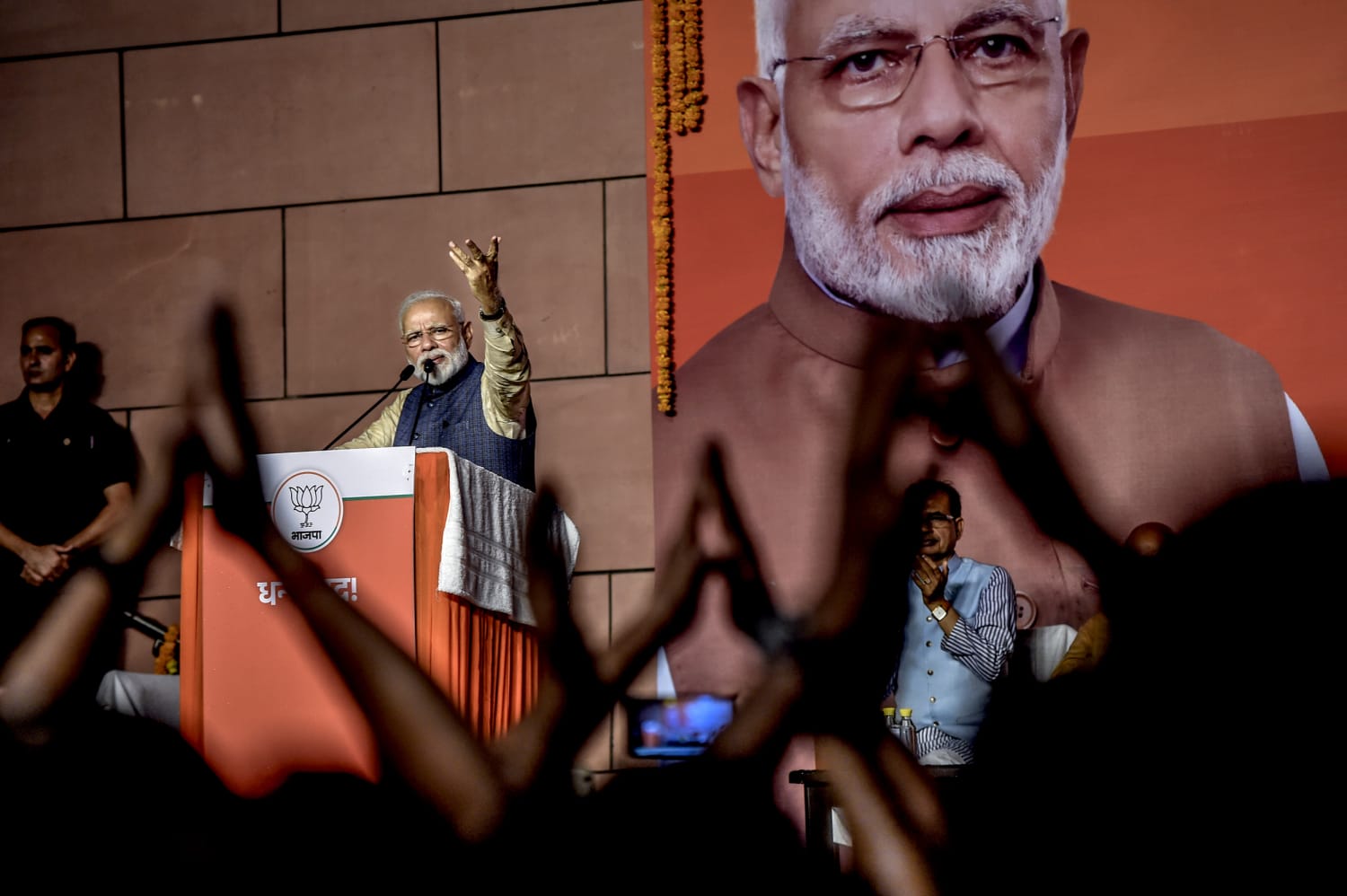Tariq Mahmood Awan
India, a land known for its rich tapestry of religions and cultures, is witnessing a troubling rise in Hindu extremism, particularly under the rule of Prime Minister Narendra Modi and his Bharatiya Janata Party (BJP). This ideology, rooted in fervent Hindu nationalism, poses a significant threat to the country’s secular identity and the well-being of its religious minorities, especially Muslims.
One of the most concerning aspects of this rise is the normalization of anti-Muslim rhetoric. Hate speech, often spread through social media and right-wing media outlets, demonizes Muslims and portrays them as outsiders or even a threat to the nation. This hateful narrative has become increasingly commonplace, creating a climate of fear and hostility. Organizations like India Hate Lab have documented a sharp rise in anti-Muslim hate speech incidents, with a significant portion occurring in BJP-ruled states.
The timing of these hate speech surges is particularly worrisome. Often, they coincide with election campaigns, suggesting a calculated manipulation of religious tensions for political gain. By stocking these anxieties, the BJP and its allies aim to consolidate their Hindu vote bank. This cynical strategy not only undermines India’s democratic values but also puts minorities at risk of violence and discrimination.
The rise in hate speech isn’t merely a war of words; it has been translated into real-world violence. Mob lynchings targeting Muslims and attacks on mosques have become disturbingly frequent. The Sangh Parivar, a Hindu nationalist group with close ties to the BJP, is often accused of orchestrating such violence. Additionally, policies implemented under the BJP government, such as the Citizenship Amendment Act (CAA) and the National Register of Citizens (NRC), have been criticized for discriminating against Muslims and other minorities. These actions further erode India’s secular principles, enshrined in its constitution.
Critics warn that the ultimate aim of Hindu extremists may be the systematic dismantling of Muslim civilization in India. This ambitious project envisions the erasure of Muslim cultural influence from the national landscape. The destruction of mosques and their replacement with Hindu temples, along with attempts to rewrite history, are seen as steps towards this goal.
India’s traditionally secular parties have been criticized for their weak response to the rise of Hindu extremism. A stronger stance against hate speech and a more robust defense of secular values is crucial. Additionally, the international community needs to hold the Indian government accountable for protecting the rights of all its citizens, regardless of religion.
The rise of Hindu extremism in India poses a significant challenge. It threatens the nation’s social fabric, its core values of tolerance and pluralism, and the safety of its minorities. Addressing this issue requires a multi-pronged approach, including stronger action against hate speech, promoting interfaith dialogue, and upholding the principles enshrined in the Indian Constitution. Only by recommitting to tolerance and unity can India truly live up to its ideals as a diverse and democratic nation.
India, a nation known for its rich tapestry of cultures and religions, is facing a growing threat to its secular identity. After a decade of rule by the Bharatiya Janata Party (BJP), a right-wing Hindu nationalist party, communal forces are gaining strength, making life increasingly difficult for religious minorities, especially Muslims.
A recent report from India Hate Lab, a US-based research group, documents this rise in communalism. Their findings paint a disturbing picture: anti-Muslim hate speech has become alarmingly commonplace. The report reveals a staggering number of incidents – 668 documented cases in 2023 alone. Significantly, 75% of these incidents occurred in states governed by the BJP. Furthermore, the report highlights a disturbing trend – a surge in hate speech coinciding with election campaigns, suggesting a cynical plot to exploit religious tensions for political gain.
This trend raises serious concerns for the safety and well-being of India’s Muslim population, particularly as the country gears up for general elections in April-May 2024. Experts fear that extremist elements will further stoke communal fires to garner votes.
The report also raises questions about the future of India’s secular fabric. The Sangh Parivar, a Hindu nationalist group with close ties to the BJP, is accused of deploying its affiliates to orchestrate violence and ensure another electoral victory for the ruling party. Beyond immediate violence, there are deeper anxieties about the long-term vision of the BJP and its allies. Will they continue to pursue a policy of polarization and hate, portraying Muslims as outsiders who must either convert to Hinduism or accept a subordinate status? The evidence from the past decade suggests a troubling answer.
Meanwhile, India’s traditionally secular parties have been criticized for their inadequate response to the rising tide of anti-Muslim rhetoric. Their silence is seen as a tacit endorsement of the BJP’s agenda.
The report goes further, outlining a chilling vision of the Sangh Parivar’s ultimate goal: the systematic dismantling of Muslim civilization in India. This ambitious project hinges on the erasure of Muslim culture from the national landscape. While achieving this may seem far-fetched, the Sangh Parivar’s dedication to this cause is undeniable.
The vilification of Muslims is just one facet of this larger agenda. The report details instances of violence against Muslims and the destruction of mosques, often replaced with Hindu temples. These actions appear to be a form of collective punishment for perceived historical transgressions.
The situation in India demands urgent attention. The rise of communalism and the targeting of minorities poses a grave threat to the nation’s social fabric and its core values of tolerance and pluralism. International pressure and a stronger response from India’s secular forces are crucial to safeguard the rights and safety of all its citizens, regardless of religion.
Please, subscribe to the YouTube channel of republicpolicy.com

















































